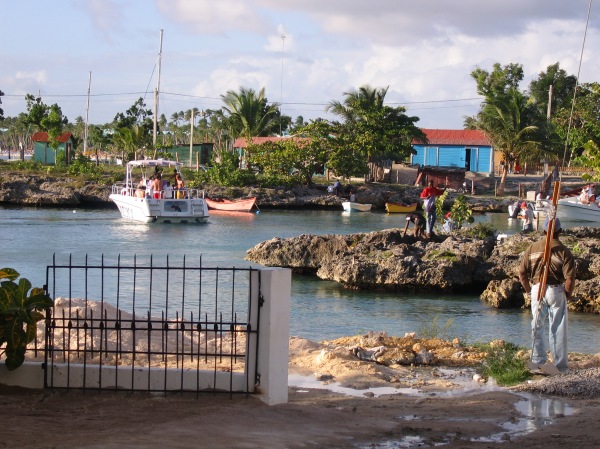Seventy-One Important Questions for the Conservation of Marine Biodiversity
A few years ago I teamed up with a group of colleagues to consider what important questions we still have to answer when it came to marine conservation. I don’t speak much about the marine world here, but of course many of the world’s largest cities can be found on the coast, and due to many reasons (economic, aesthetic, etc.), coastal areas are rapidly urbanizing. In fact, about 45% of the world’s population can now be found in coastal regions (Mee 2012).
We went through a list of 631 initial questions obtained from colleagues and professional associations, and eventually distilled this down to 71 questions that we as a group felt were not yet adequately addressed in the literature. We broke the questions down into eight categories: Fisheries, Climate Change, Other Anthropogenic Effects, Ecosystems, Marine Citizenship, Policy, Societal and Cultural Considerations, and Scientific Enterprise. Not all of the questions are related to urban areas (for example, ones that discuss high seas law and policy), and others only indirectly touch on cities, but I thought I’d list those I felt had the most to do with urban areas here. For those of you interested in marine conservation, or just starting out careers in the field, take a look! Perhaps you’ll find some inspiration. The full article, which has just been published, is available open access, thanks to the Society for Conservation Biology. You can find it here — it’s not very long. Conservation Magazine also did a brief write-up of the article, if you’re looking for something even shorter!
Other Anthropogenic Threats:
- How can the formation of anoxic dead zones be forecasted and prevented and how can conditions leading to dead-zone formation be reversed if they form?
- How can the benefits of tourism to marine ecosystems be maximized while minimizing negative impacts?
- What effects do urbanization and changing patterns of land use have on coastal, estuarine, and marine biodiversity, and how can policy and practice be integrated to ensure that these effects are mitigated?
- How can the provision of ecosystem services (known and unknown, quantitative and qualitative) be incorporated into marine conservation planning and management and how do we determine how much of each ecosystem service to protect?
Climate Change:
- What are the implications of climate change for small island nations in terms of sea-level rise and their ability to meet international conservation commitments while maintaining local food security?
- What are the possible ecological impacts of technological mitigation strategies (e.g., coastal defenses) developed to allow human communities to adapt to climate change?
- How will human pressures on the seascape shift and change as climate change impacts affect additional areas of the ocean?
Marine Citizenship:
- What are the best methods to encourage context- specific behavioral changes to increase conservation of the marine environment and what behaviors are most important to change?
- What are the best methods and tools available to engage citizens in marine conservation?
- What are the most critical messages, concepts, and skills that should be communicated to, and developed with, citizens to improve societal understanding of marine conservation problems?
- What are the best ways to frame marine conservation messages in light of different values and perceptions of the marine environment held by different audiences?
Societal and Cultural Considerations:
- How has humankind’s various worldviews shaped perceptions, relationships, and narratives related to the marine environment and how do these influence marine conservation?
- How can marine conservation support food security, cultural security, and human well-being whilst acknowledging local governance and sovereignty?
- How can marine cultural heritage, maritime historical heritage, and biological conservation be best integrated to maximize benefits for all stakeholders?
- How are socially just and equitable marine conservation processes and outcomes (incorporating gender, intergenerational, and socioeconomic equity) best developed and delivered?
- What lessons derived from conflict management, resolution, and avoidance in other disciplines could be beneficially applied to marine conservation?
Parsons, E.C.M., Favaro, Brett, Aguirre, A. Alsonso, Bauer, Amy L., Blight, Louise K., Cigliano, John A., Coleman, Melinda A., Cote, Isabelle M., Draheim, Megan, Fletcher, Stephen, Foley, Melissa M., Jefferson, Rebecca, Jones, Miranda C., Kelaher, Brendan P., Luncquist, Carolyn J., McCarthy, Julie-Beth, Nelson, Anne, Patterson, Katheryn, Walsh, Leslie, Wright, Andrew J., and Sutherland, William J. 2014. Seventy-one important question for the conservation of marine biodiversity. Conservation Biology. DOI: 10.1111/cobi.12303
Mee, Laurence. 2012. Between the devil and the deep blue sea: The coastal zone in an era of globilisation. Estuarine, Coastal and Shelf Science. 96: 1-8.

